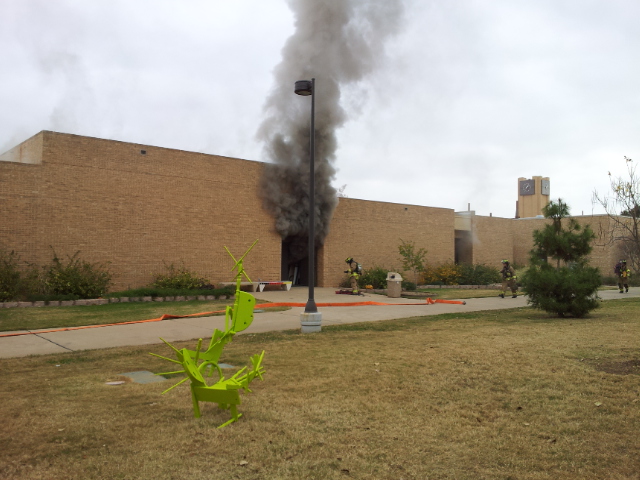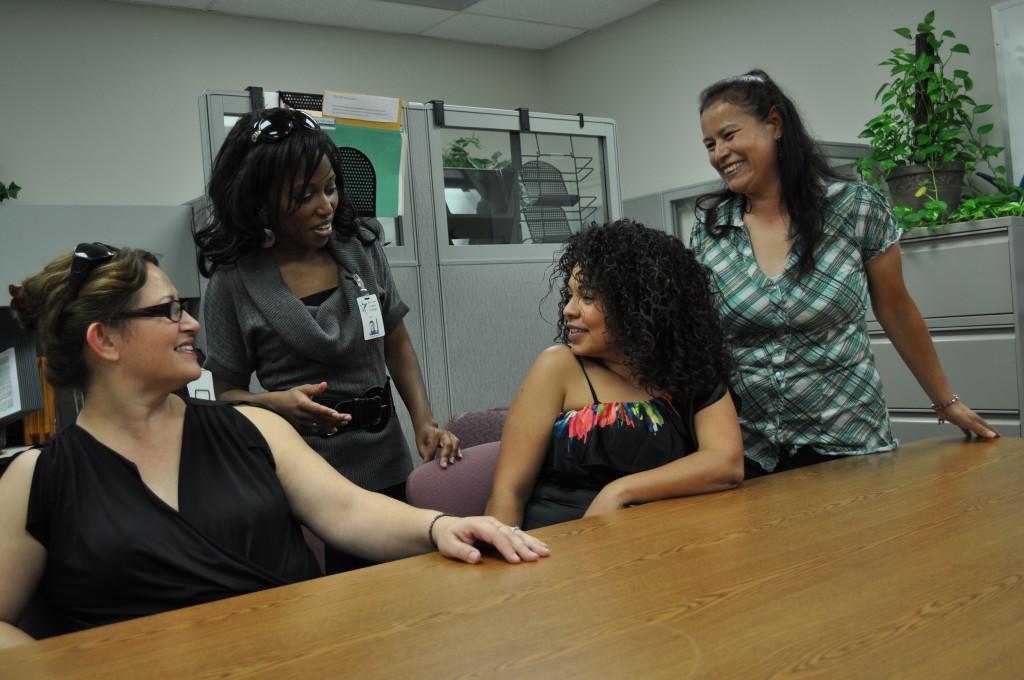By Joshua Knopp/special assignments editor
Over the past few years, a divide has formed between TCC faculty and administration.
In attempts to improve the college, the administration has put a multitude of policies in place that affect teachers’ everyday routines, and many faculty are and have been skeptical of the programs’ effectiveness.
Former vice chancellor of administration and current journalism adjunct Bill Lace thinks tensions started when Achieving the Dream was introduced. At the time, TCC compared unfavorably in many categories to other, similarly sized community colleges, and administration introduced Achieving the Dream to improve.
Although the program brought big changes from the top down, Lace said the faculty felt unnecessarily aggressed by the program’s introduction.
“I think faculty felt like they were getting all the blame, but I really don’t think that’s true,” he said. “Every area touching student success was being looked at.”
Since then, multiple other programs have come to the forefront, including student group advisement and the Math Emporium. Lace said from the faculty’s perspective, it must have been like drinking from a fire hydrant, but it needed to happen.
“This is really the first time in my memory that a lot of attention is being paid to student success,” he said. “I think everyone was caught a little off-guard, but, in retrospect, it was high time it happened.”
Faculty have many current
concerns, but a common thread has been the increase in administrative positions and decrease in full-time teachers relative to students. At the beginning of the 2006-07 school year, there were 65 students for each full-time faculty member. However, that number shot up to 77.3 over the next five years, according to TCC data.
Major events in that time period include TR Campus opening and a buyout that, among other things, brought in adjuncts to replace departing full-time teachers.
In the same time, two vice chancellors were hired. Vice chancellors make around $180,000 per year, according to the Texas Tribune, enough to hire three and a half full-time teachers, according to the TCC pay schedule.
South Campus Joint Consultation Committee representative David Clinkscale said the growth in administrators is unnerving.
“Probably no faculty member is ever going to be completely happy with administration, but I think a lot of people on the faculty are disappointed in the growth of the administrative segment,” he said.
The Collegian interviewed two other faculty members who did not wish to be named but echoed Clinkscale’s sentiment about this and other topics.
Chancellor Erma Johnson Hadley defended her hiring of two more vice chancellors, saying both were necessary to pay attention to details the college hadn’t been paying enough attention to before. Additionally, Hadley cited surveys that placed TCC’s administrative and executive staff well below average for Texas community colleges. TCC has 373 staff members as opposed to the average 677, according to data collected by the Integrated Postsecondary Education System.
Hadley said all the initiatives are to make TCC a more balanced school.
“We want more and varied options for our students,” Hadley said. “That would help us with our graduation. That would help a lot of students who are on the bubble.”
Hadley specifically mentioned increasing dual credit and distance learning courses, helping students learn on their own and test out of classes and diversifying weekend college schedules as ways to increase variety.
A major concern for both faculty and administration is minimizing student costs. A large sticking point between the two has developed over the administration trying to introduce common course textbooks, or keeping the same textbook for every class of each subject across all campuses. Administrators say the ability to order in bulk will help reduce textbook costs.
“I have met with several publishers as I have gone to meetings,” Hadley said. “And all of the publishers will tell you there are indeed savings from a common textbook. No one can tell you exactly how much savings will be until you’ve selected the textbook.”
Hadley also mentioned increasing options for textbook formats and more use of online resources as something to help students’ grades and wallets.
“Courseware (online educational resources) is going to be more than just a textbook. It’s going to be all kinds of things,” she said. “There are just so many options that we can look at, and that’s what I’m asking the JCC to do.”
Faculty representatives don’t think switching to common textbooks will save money and aren’t sure that’s the real point of the initiative.
“Quite frankly, the rationale given to us has been variable and not very convincing,” Clinkscale said about common course textbooks. “We’ve gotten mixed signals as to the ultimate purpose of this. We don’t know if the purpose is to save money or to do what.”
The common textbook issue was the straw that broke the camel’s back last spring when the JCC blocked its implementation on the grounds of academic freedom and a lack of data supporting the idea.
The JCC is currently setting up a trial with 10 faculty each from 10 common subjects who will choose a common textbook and record results. JCC chair Robin Birt said the trial will start in the fall 2013 semester.
Birt took a murky view of the initiative, saying alternatives to lowering costs exist that don’t compromise academic freedom.
“Why is this being pushed if the end result is lower costs?” she asked. “That can be accomplished.”
Clinkscale said both factions have the same goal, but he doesn’t think they’ve come together as much as they should.
“At the end of the day, I think everybody from the chancellor down to the rawest adjunct wants this college to work,” he said. “I just think we may not go about that in the most effective or most inclusive manner.”



























